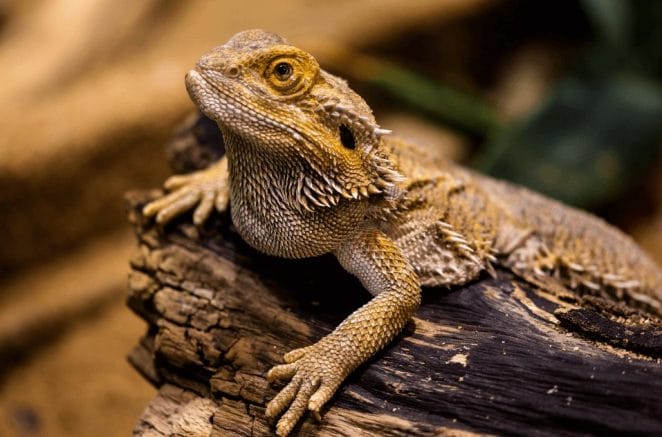
When it comes to the reptilian kingdom, the bearded dragon is a popular choice for a pet. Still, how many of us are aware of the specialized dietary needs of this unique creature?
Managing your bearded dragon’s diet is crucial, with their health and lifespan heavily influenced by what they consume. A well-fed bearded dragon can live for 10-15 years, a testament to the significance of diet. If you have a bearded dragon or are planning to get one, you must familiarize yourself with their dietary needs.
In this guide, we’ll explore the ins and outs of the bearded dragon diet in detail. By the end, you’ll not only understand what to feed your scaly friend but also why and how often, setting you on the path to becoming a responsible and knowledgeable pet owner.
Understanding the Bearded Dragon
Hailing from the harsh environments of Australia, bearded dragons are resilient creatures. Their natural habitat is full of diverse foods. This biological background shapes the bearded dragon diet, which should be a mix of proteins, fruits, and vegetables.
Dietary Needs of a Bearded Dragon
A bearded dragon’s diet must match its needs, with a balance between proteins and plant-based foods. Younger dragons need more protein for growth, while adults need more plant-based foods.
A common rule is the “20-80” guideline. It suggests 20% of a young dragon’s diet should be plant-based, switching to 80% as they age.
What to Feed Your Bearded Dragon
Diving into specifics, let’s see what bearded dragon food should be. Insects like crickets, mealworms, and dubia roaches make for excellent protein sources.
Remember to feed bearded dragon appropriate-sized insects, typically no larger than the space between their eyes. This pet care practice prevents choking and digestive issues.
A range of vegetables can also be part of the bearded dragon diet. Leafy greens like collard, mustard, and dandelion greens are beneficial. Vegetables such as squash, bell peppers, and cucumber make good choices too.
Fruits, while enjoyed, should be given sparingly due to their high sugar content. Apples, peaches, and berries can be occasional treats.
What Not to Feed Your Bearded Dragon
While variety is good, some foods should never be part of a bearded dragon’s diet. Avocado, rhubarb, and all types of lettuce should be avoided. These contain substances harmful to the dragon’s health.
Commercial pet food, meant for other animals, might also be unsuitable. The nutritional content may not meet the needs of a bearded dragon, which requires specific nutrients and proportions.
Special Considerations in Feeding
Life stages and conditions affect how you feed a bearded dragon. Baby and juvenile dragons need daily feeding due to their rapid growth. Adults can be fed every other day.
Pregnant or sick dragons might have different dietary needs, so consulting a vet in these instances is a good pet care practice.
Overfeeding is another issue to be aware of. Obesity can shorten a dragon’s lifespan and cause health issues. Monitoring their appetite, body shape, and behavior can help prevent overfeeding.
Supplements for Bearded Dragons
Supplements are a crucial part of the bearded dragon diet. Calcium and vitamin D3 are particularly important for bone health. You can dust insects with a supplement powder before feeding.
Bearded dragons also need UVB light to synthesize vitamin D3, so a UVB lamp in their habitat is vital. For a more detailed guide on bearded dragon care, you can follow this link.
Take the Next Steps for Your Bearded Dragon
Through understanding and implementing the right bearded dragon diet, you’re making a powerful commitment to your pet’s well-being. Now you know the importance of what they consume, and the responsibility that comes with their care. As with any aspect of pet care, there’s always more to learn.
Remember, your pet’s health is in your hands. Don’t stop here! Continue exploring more on our blog, advancing your knowledge to become the best bearded dragon caretaker possible.


GIPHY App Key not set. Please check settings